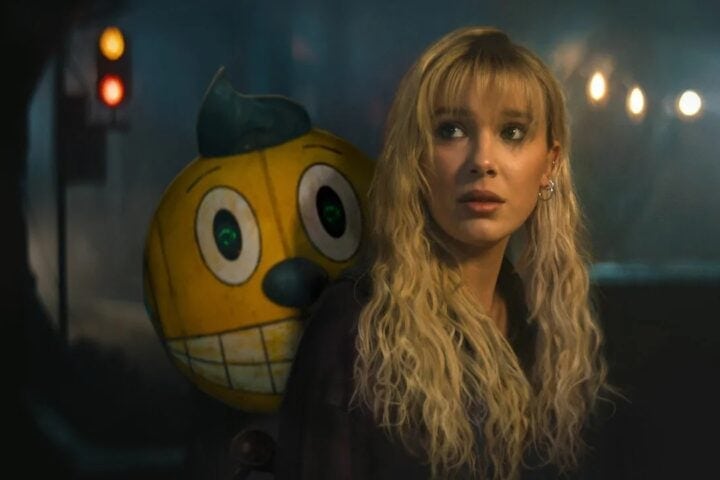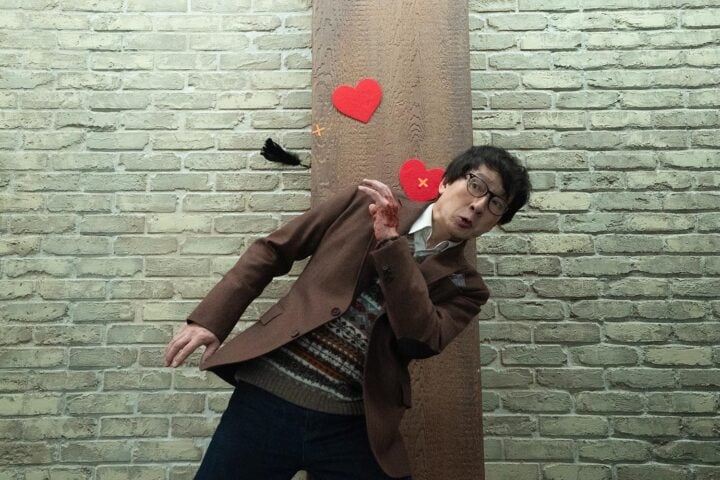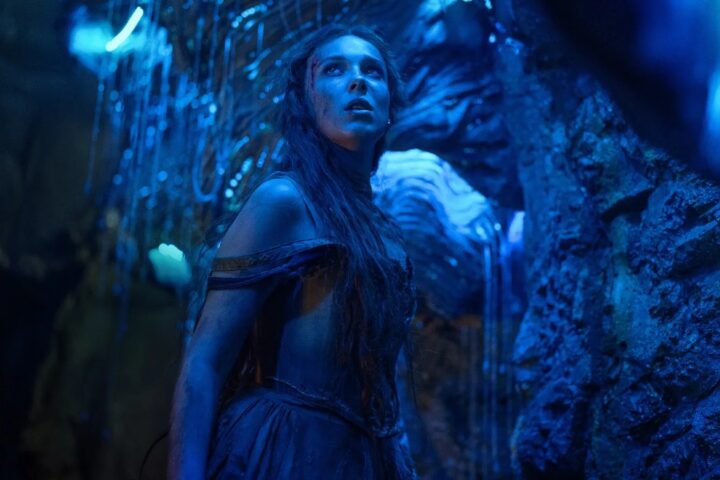There’s a running gag in Kung Fu Panda 4 about Po (Jack Black) needing to workshop more profound words of wisdom if he’s going to be a spiritual leader. It’s easy to read it as a meta commentary on the series itself wanting for more depth if it’s going to continue moving forward. The film is a good time, and it doesn’t exactly betray any of Kung Fu Panda’s strengths, but it also exhibits the telltale signs of a series struggling to justify its existence.
In fairness, the sense that Po’s talents might be better utilized elsewhere—like, say, in one of the three (!) Netflix cartoons based on the films—is baked into the plot here, with Master Shifu (Dustin Hoffman) telling Po that the time has come to choose a new Dragon Master so that he may spread enlightenment to the rest of his valley. They barely have time to get into that conversation before chaos ensues, first in the form of a stealthy, speedy master thief fox, Zhen (Awkwafina), then by a treacherous chameleon named…well, the Chameleon (Viola Davis).
It’s a red flag that Davis’s villain—a reptilian spin on Shang Tsung from Mortal Kombat—doesn’t even get a proper name. She also doesn’t really get much to do until the third act finds her using her ill-gotten gains and criminal syndicate to steal souls from the spirit realm, granting her the kung fu abilities that the Furious Five’s temple denied her. Which is to say, the Chameleon isn’t utilized nearly as effectively as Ian McShane’s bitter, angry Tai Lung and Gary Oldman’s absolutely unhinged General Shen were in prior Kung Fu Panda films.
Awkwafina fares better. She and Black have excellent chemistry together, with their characters effortlessly riffing up a storm throughout. Awkwafina also benefits from voicing a character with such a strong arc: that of a street kid who shelved her moral code to survive. In a sequence bolstered by Ke Huy Quan’s delightful turn as a crooked shopkeep armadillo, we get a darkly hilarious glimpse of the undercity where Zhen grew up. Pity, then, that the film doesn’t slow down and let her wrestle with her poverty-stricken past versus her potential future a bit more.
Despite some fertile narrative ground to build upon, aside from a few, scattered but sweet scenes, there’s so much emotionality and thematic depth left on the table, in favor of comedy above all. Two sequences set inside a rough, rabbit-run tavern on the side of a cliff are consistently funny, but many of the things these films have traditionally done best that set them apart from other animated fare are more muted than normal in Kung Fu Panda 4.
Yes, there are still the fights to look forward to, and they’re as beautifully stylish and bombastic as fans of the Kung Fu Panda have come to expect, but this series has historically been able to balance that bombast with more heart than what’s on display here. If another one of these films is coming, Po would be best served by remembering the lessons that he learned throughout his previous adventures: to focus on the things he can do that no one else can.
Since 2001, we've brought you uncompromising, candid takes on the world of film, music, television, video games, theater, and more. Independently owned and operated publications like Slant have been hit hard in recent years, but we’re committed to keeping our content free and accessible—meaning no paywalls or fees.
If you like what we do, please consider subscribing to our Patreon or making a donation.






